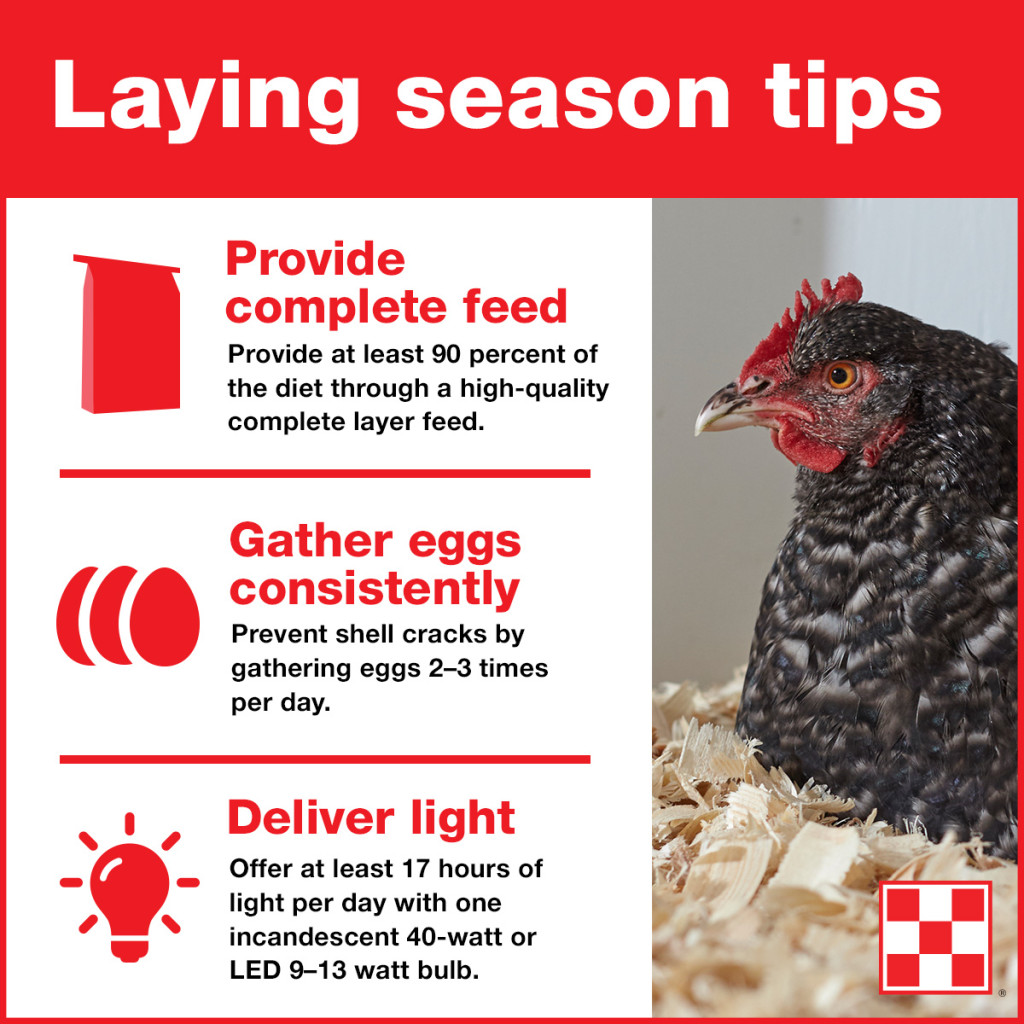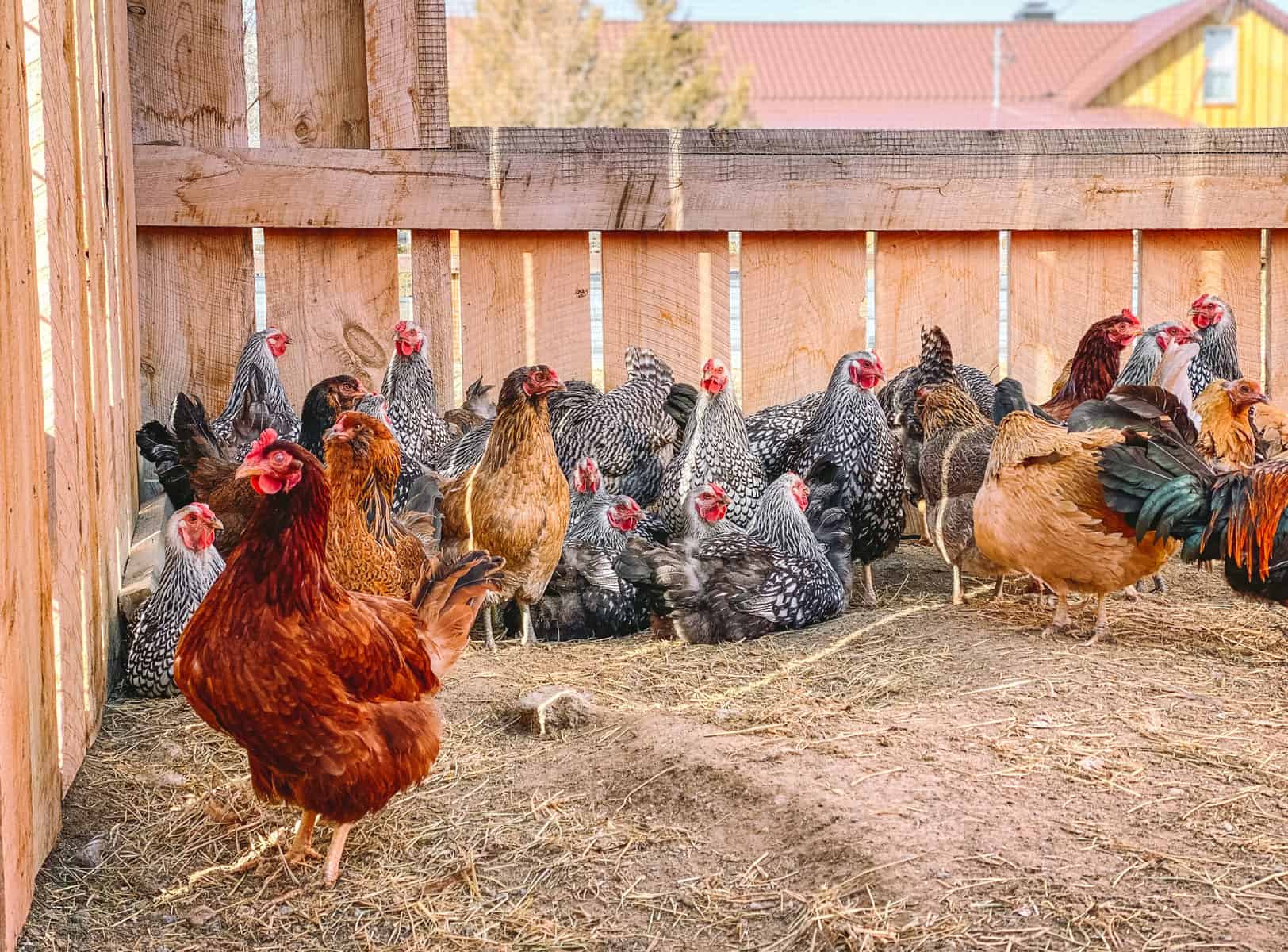Are you looking for a complete guide on “how to get hens to lay”? If so, then you have come to the right place. In this article, we will discuss the basics of chicken husbandry, including how to get hens to lay eggs. We will cover topics such as housing and feeding, health and nutrition, and poultry breeds best suited for egg-laying. By the end of this article, you will have a better understanding of how to get hens to lay eggs and be able to create a successful poultry farm.
What Makes a Chicken Lay Eggs

Hours of Daylight
Chickens need a certain amount of light to lay eggs. The ideal amount of light for hens to lay eggs is 16-17 hours of daylight. If the light is too low or too high, the hens will stop laying.
Nutrition
Nutrition is essential for a hen to lay eggs. A balanced diet with adequate calcium, protein, vitamins, and minerals is necessary for hens to lay eggs. A lack of any of these nutrients can prevent hens from laying.
Age
Age is also an important factor for hens to lay eggs. Most hens start laying eggs between 18-24 weeks of age. However, some breeds of chickens may not start laying until they are over a year old.
Stress
Stress can also affect a hen’s ability to lay eggs. Hens that are kept in small, cramped, or noisy environments can become stressed, which can lead to a decrease in egg production.
Hens need to be kept in a stress-free environment to ensure they lay eggs.
How to Get Your Chickens to Lay Eggs

Provide Adequate Nutrition
Chickens need an adequate supply of feed to ensure they are getting the nutrients they need to lay eggs. Make sure to provide your chickens with a balanced diet that includes a high-quality protein source and plenty of calcium, which is essential for egg production. If you are feeding your chickens a commercial feed, make sure to supplement it with fresh greens, fruits, and vegetables to ensure they are getting all the nutrients they need.
Provide Adequate Space
Chickens need space to move around and forage for food. If you are keeping your chickens in a coop, make sure the coop is large enough for them to move freely and that they have access to an enclosed outdoor area.
Provide Adequate Light
Chickens need a minimum of 14 hours of light per day to stimulate egg production. Make sure your coop is getting enough light, either by providing artificial lights or by placing it in an area that gets plenty of natural light.
Provide Adequate Ventilation
Good ventilation is essential for chickens to stay healthy and happy. Make sure your coop is well-ventilated, with adequate air flow and a temperature that is not too hot or too cold.
Ensure Ample Time Outdoors
Chickens need access to the outdoors to get enough exercise and to forage for food. Make sure your chickens have access to an enclosed outdoor area and that they get plenty of time outside to roam and explore.
Provide Adequate Protection from Predators
Chickens that are not adequately protected from predators can become stressed and stop laying eggs. Make sure your coop is secure and that you are taking steps to protect your chickens from predators.
Following these steps will help ensure your chickens are healthy and happy and will get them to start laying eggs.
How to Make a Chicken Lay Eggs
Provide Adequate Nutrition
Hens need a balanced diet with the right amount of carbohydrates, proteins, fats, vitamins and minerals to produce eggs. Offer a nutritionally balanced feed, free of mold and other contaminants.
Provide Adequate Light
Hens need 14-16 hours of light a day to produce eggs. If natural light is not available, use artificial lighting to mimic a natural day-night cycle.
Provide Adequate Ventilation
Good ventilation keeps hens healthy and reduces the risk of respiratory diseases. Keep the coop well-ventilated and dry.
Provide Adequate Protection from Predators
Hens need to be safe from predators such as foxes, hawks, snakes and other animals that could harm them. Ensure the coop is secure and predators are not able to get in.
Ensure Ample Time Outdoors
Hens need plenty of time outdoors to stay healthy and to lay eggs. Allow them to roam around and explore their environment.
By following these simple steps, you can ensure your hens are in the best condition to produce eggs. With the right nutrition, light, ventilation and protection, you can get your hens to lay eggs and enjoy a successful chicken husbandry experience.
Frequently Asked Questions
What kind of environment should I provide for the chickens?
- A comfortable, safe, and secure coop/shed with adequate ventilation and insulation.
- A clean and dry nesting area, with enough room for each hen to lay her eggs.
- A well-ventilated run or outdoor area for your chickens to forage and exercise.
- A balanced diet of feed and treats, including hay, greens, insects, and grit.
- A source of clean, fresh water.
- Adequate lighting for your chickens to lay eggs.
- A dust bath area, which will help your chickens stay clean and healthy.
- Protection from predators, such as foxes, hawks, and snakes.
Providing the right environment for your chickens will help ensure that they are healthy, happy, and able to lay plenty of eggs.
How often should I collect the eggs?
Egg collection should be done regularly to ensure freshness and prevent the eggs from spoiling. It is recommended to collect the eggs at least once a day, and preferably twice a day if possible. This will help to keep the nesting boxes clean, and reduce the chance of pests or predators taking the eggs. It is also important to collect the eggs quickly so that hens do not start to eat them.
How can I encourage my hens to lay more eggs?
To encourage more egg production, provide your hens with a balanced diet rich in protein, calcium, and other essential nutrients. Maintain consistent light exposure, as hens require at least 14 hours of light per day. Keep the coop warm, comfortable, and dry, as cold and damp conditions can reduce egg production. Ensure that hens have access to plenty of fresh, clean water. Finally, keep the nesting boxes clean and provide plenty of nesting material.
What Should I Feed My Chickens to Ensure They are Healthy and Productive?
A Healthy Diet is Essential: To ensure your hens remain healthy and productive, it is essential to provide them with a balanced diet. This should include a combination of grains, greens, insects and other proteins.
Grains: Grains should form the basis of your chickens’ diet and should include a variety of grains such as wheat, corn, oats, and barley. Additionally, they may enjoy treats such as cracked corn, millet, and sunflower seeds.
Greens: Chickens need a variety of fresh, green vegetables in their diet. Leafy greens such as lettuce, kale, and spinach are particularly beneficial. Root vegetables such as carrots, turnips, and beets are also enjoyed by chickens.
Insects and Other Proteins: Chickens should be provided with plenty of insects, such as mealworms, crickets, or grasshoppers. Meat scraps and cooked eggs can also be offered as an additional source of protein.
Vitamins and Minerals: Chickens require a variety of vitamins and minerals to remain healthy and productive. A vitamin and mineral supplement can be added to the feed to ensure that they are getting the nutrition they need.
Water: It is essential that chickens have access to clean, fresh water at all times. The water should be changed regularly and the bowls should be cleaned regularly to prevent contamination.
How can I tell if my chickens are healthy and happy?
Chickens that are healthy and happy will have bright, glossy feathers, clean combs and wattles, and a lively, alert demeanor. They should have clear eyes and legs free from injury or disease. Healthy chickens will have a strong appetite and should have plenty of energy to explore their environment. Pay attention to their behavior; watch for signs of distress such as isolation, feather-picking, and aggression. Also, check for signs of parasites, such as mites, lice, and worms. Finally, keep an eye on egg production; healthy hens should be laying eggs regularly.
Conclusion
By providing a comfortable and secure environment for your hens, offering a balanced diet with plenty of calcium, and providing the appropriate nesting boxes and perches, you can ensure that your hens will lay eggs regularly. With a little care and attention, you can enjoy a steady supply of fresh eggs from your feathered friends.
References
- Gill, M. (2020). How to Get Hens to Lay: A Complete Guide to Chicken Husbandry. The Happy Chicken Coop. Retrieved from https://www.thehappychickencoop.com/how-to-get-hens-to-lay/
- Britt, B. (2019). Chicken Care Basics. The Spruce. Retrieved from https://www.thespruce.com/chicken-care-basics-3960562
